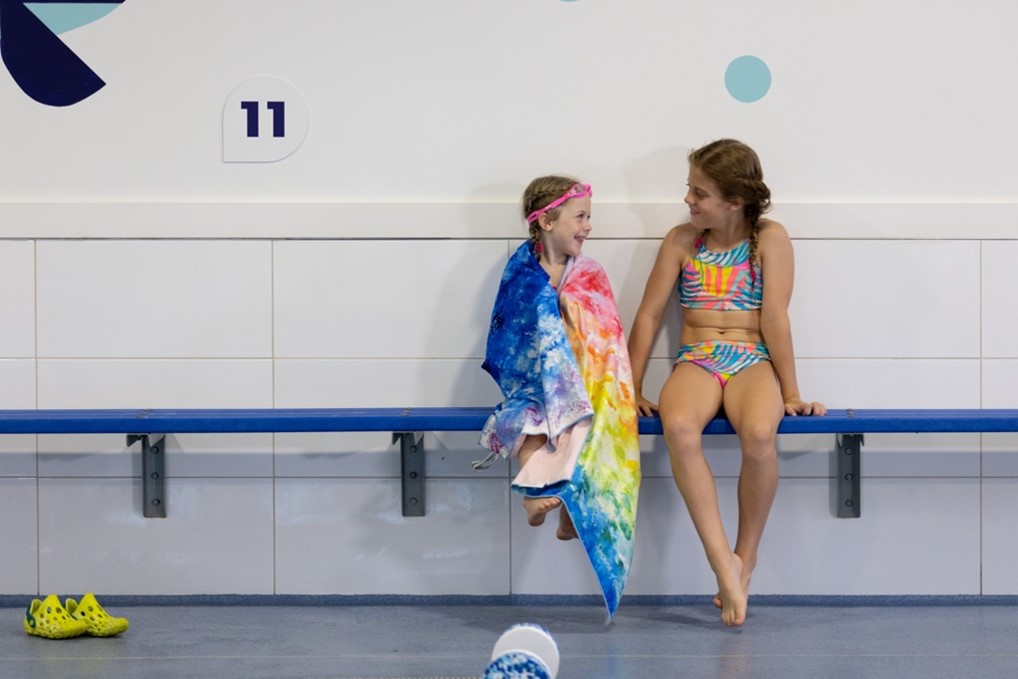
More and more families are traveling during the school year. Here’s how to minimize the impact—and maximize the benefits—of school-year vacations.
Last January, my family took an epic 11-day vacation to Oahu, Hawaii. We swam, snorkeled, hiked and—most importantly—bonded.
The best part? Our kids, twin boys in fifth grade and a daughter who was in second grade at the time, only missed three and a half days of school.
That’s because we traveled on a week when Fairfax County Public Schools were closed on Monday for Martin Luther King, Jr. Day, had an early release that Thursday, and were closed again on Friday and the following Monday for teacher workdays. When we returned, the kids were able to jump right back into school without having missed much at all.
Not everyone thinks of taking school-year vacations. Here’s why they are not only possible, but worth it.
Benefits of School-Year Vacations
There are plenty of benefits to vacationing during the school year. Flights, accommodations, and even rental cars are often much cheaper during off-peak times than over the summer or during school breaks. For many families, that means school-year trips are the only vacations they can afford.
Crowds are also much thinner during off-peak times. Families can relax on emptier beaches, enjoy theme park attractions without waiting in two-hour lines and take road trips without sitting in crazy traffic (and therefore save money on gas), etc.
It’s no surprise, then, that more and more families are pulling kids out of school to go on vacations. In an April 2022 survey of more than 3,000 parents by Family Destinations Guide, two thirds of respondents said they believe the benefits of family travel far outweigh the missed school days.
Parents also said they’d be willing to pay an average of $883 to take their kids on vacation during the school year in response to a California school district charging parents daily fines for unexcused absences.
“For my family, traveling during the school year is the only way to travel,” says Eliza Weeks, a Burke, Virginia mom who’s pulled her second-grader out of school for short trips to Disney World and Universal Studios. “We save money, we’re less stressed and we have fun.”
Many teachers and administrators also acknowledge the benefits of school-year vacations. Amy Goodwill, principal of Rocky Run Middle School in Chantilly, Virginia, says, “Travel can provide some outstanding learning opportunities that complement the child’s studies. Plus, sometimes families just need a break.”
Others are more concerned about longer school-year trips than shorter ones. “Try to plan the vacation so your child only misses one day,” says Kyria Joseph, executive director of secondary schools for Baltimore County Public Schools. “More vacation days unintentionally impact school achievement data, leading administrators to spend additional time writing school improvement plans.”
Here are some expert tips on what to consider when planning a family vacation during the school year and how to minimize the negative impacts—and maximize the benefits—of the trip.
Planning a School-Year Vacation
• Know that vacation days are considered unexcused absences and will go on your child’s record as such. If a child is absent for a certain number of consecutive days, that child will be disenrolled from school and will have to re-enroll. (The exact number of days varies by school district.)
• Time it right. It’s tempting to squeeze in one last summer trip after school starts—when it’s still hot but beach rentals and hotels have gone way down in price—but Goodwill cautions against it. “It’s hard on kids to miss the very beginning of the school year,” she says. “Kids need to settle in and acclimate.”
Joseph says to also avoid traveling during testing and assessments such as the SAT or ACT and to consider the child’s extracurricular activities. “Avoid planning a vacation during performances for drama students or playoff season for
student athletes.”
And of course, do as my family did—review the school-year calendar and plan a vacation around teacher workdays and student holidays.
• Consider the child’s age and grade level. Elementary-school students will be less affected by absences than middle-school students. Once kids are in high school, Goodwill warns, “They can miss a significant amount of curriculum in only a few days.”
• Think about the student’s personality and grades. “If the child’s academic record is not satisfactory or he or she does not have good organizational skills, parents should reconsider placing additional stress on the child to make up work,” Joseph says.
• Discuss travel plans with older kids. Goodwill herself is a mother of three, including two teenagers. “The idea of missing several days of school is a source of anxiety for the teens,” she says. So, if you can, involve older kids in trip planning and talk with them about whether they’d even want to miss school.
• Give teachers as much notice as possible. That way, they’ll be able to get your child any materials they’ll need in advance. If you want to be proactive, check to see if their teachers post classwork on a website such as Schoology. The more work your child can do ahead of time, the less behind he or she will fall during the trip. But be realistic about asking teachers for extra work. Sometimes, they just don’t have time to prepare extra assignments for your child to complete before or during the trip.
Maximizing the Learning Potential of a School-Year Vacation
• Allow kids to help plan the trip. This can be a great opportunity to teach children about organization, time management and budgeting.
• Make connections to your child’s curriculum. Museums, historic sites, and national parks are all great places to visit. During our Hawaii trip, we visited Pearl Harbor, learned how pineapples and other fruits grow at the Dole Plantation and observed rock formations on a mountain hike—all things my kids had learned about in school and could now see in real life.
• Find learning opportunities wherever you can. Traveling mishaps such as delayed flights, lost luggage, language barriers and more can teach kids flexibility, patience and resilience. Seeing how other cultures live can increase empathy and tolerance. Even a trip to the beach can teach kids about topics such as sea life, ecology and conservation.
Most of all, remember to have fun. The biggest travel benefit of all is the opportunity to spend time together as a family, de-stress and recharge your batteries. School—and work—will be there waiting when you return!





